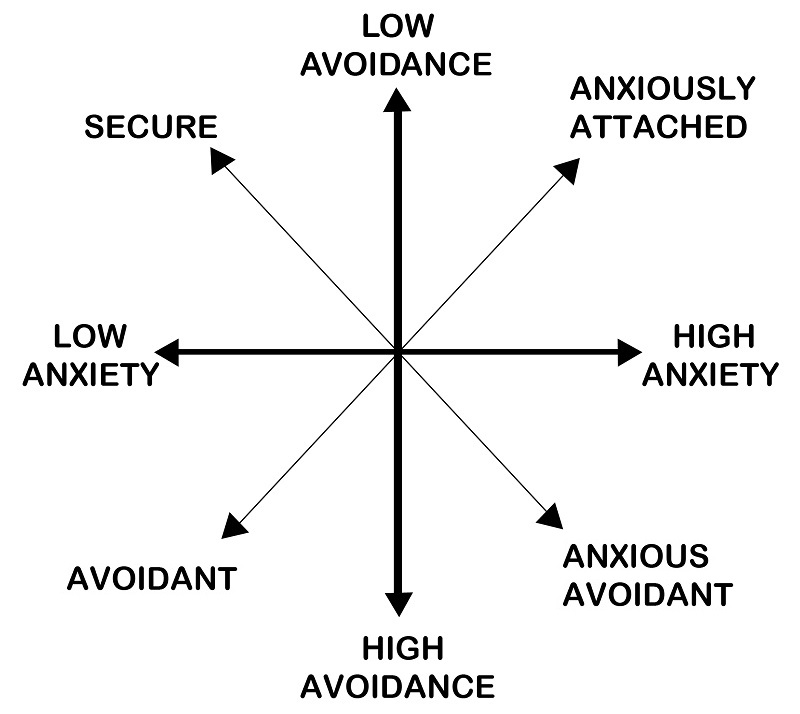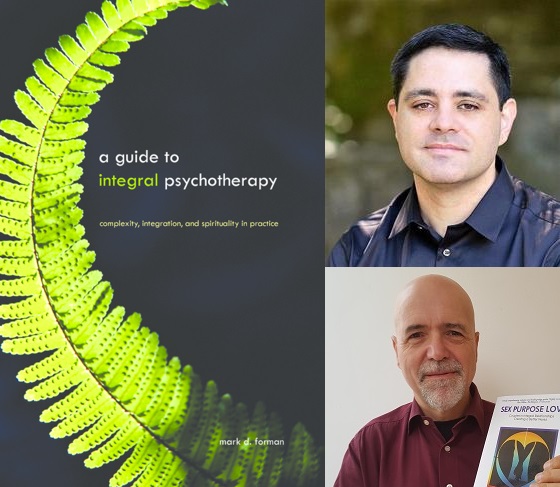
How Integral Psychotherapy addresses spiritual bypassing, attachment styles, personality disorders, and shadow issues in love relationships.
Integral men are often attracted to women with complex personalities. We find them interesting and fascinating, as they usually have a spiritual practice and have done some personal healing and development work. These women invite and challenge us to further heal, grow, and awaken—or to grow-up, clean-up, wake-up and show up.
| Table 2: History of ACEs Among 17,000 Kaiser Permanente Members Surveyed | |||
| Category of Adverse Childhood Experience | Percentage of Women Experiencing | Percentage of Men Experiencing
|
Total |
| Recurrent and severe physical abuse | 27% | 30% | 28% |
| Recurrent and severe emotional abuse | 13% | 8% | 11% |
| Sexual abuse | 25% | 16% | 21% |
| Emotional Neglect | 17% | 12% | 14% |
| Physical Neglect | 9% | 11% | 10% |
| Growing up in a household with: | |||
| Household substance abuse | 30% | 24% | 27% |
| A family member being imprisoned | 5% | 4% | 5% |
| Household mental illness | 23% | 15% | 19% |
| Parental separation or divorce | 25% | 22% | 23% |
| The mother being treated violently[i] | 14% | 12% | 13% |
[i] Typical of many studies of family violence and trauma, this study did not assess for violence against the father. Large meta-analysis of studies (e.g., Archer, 2000) show that rates of domestic violence are almost exactly equal relative to the sexes. Following from this, there is likely an additional category of children who experienced trauma through witnessing the father being physically assaulted, either individually or as a part of a reciprocally violent relationship.
Alas, some of them (and of course some men too) have Borderline, Histrionic, Narcissistic or other Personality Disorders. They soon make these relationships into one-way streets when more and more attention is demanded by the afflicted partners and they become emotionally and sometimes physically abusive when their increasing demands for attention and support are not met.
Eventually the “empaths” (or helpers) burn out and the abusers leave to find their next victim to feed on after blaming the empaths of being “unenlightened,” “unevolved,” “unloving,” “selfish,” “passive-aggressive,” or “having taken advantage of them,” when in fact, it was the other way around. And to add insult to injury, they often shame and denounce the empaths publicly. These “love relationships” usually go through 22 stages of decline.
It is obviously a sign of leaky/unhealthy boundaries on the empaths side if these relationship patterns repeat themselves.
On the other hand, women often complain that Integral men are not embodied enough and engage in Spiritual Bypassing to avoid dealing with Shadow Issues that result from a lack of healthy integration of earlier levels of consciousness development. As Wilber points out, the more evolved we become, the more opportunities we have to screw up to transcend and include in healthy ways.
And often, both partners in troubled love relationships deal with unhealthy and incompatible attachment styles, especially if one partner is avoidant and the other is anxious, or if one or both have a “confused” combination as shown below. More at the bottom of this page in the Scoring Key for the Quiz.
If some or all of this resonates with you or triggers you, I especially invite you to participate in this Saturday’s webjam.

Attachment Style Quiz.
Write down the letter (A, B or C) for each of the statements below that are TRUE for you. (If the answer is untrue, don’t mark the item at all.)
| True | |||
| A | B | C | |
| I often worry that my partner will stop loving me. | O | ||
| I find it easy to be affectionate with my partner. | O | ||
| I fear that once someone gets to know the real me, s/he won’t like who I am. | O | ||
| I find that I bounce back quickly after a breakup. It’s weird how I can just put someone out of my mind. | O | ||
| When I’m not involved in a relationship, I feel somewhat anxious and incomplete. | O | ||
| I find it difficult to emotionally support my partner when s/he is feeling down. | O | ||
| When my partner is away, I’m afraid that s/he might become interested in someone else. | O | ||
| I feel comfortable depending on romantic partners. | O | ||
| My independence is more important to me than my relationships. | O | ||
| I prefer not to share my innermost feelings with my partner. | O | ||
| When I show my partner how I feel, I’m afraid s/he will not feel the same about me. | O | ||
| I am generally satisfied with my romantic relationships. | O | ||
| I don’t feel the need to act out much in my romantic relationships. | O | ||
| I think about my relationships a lot. | O | ||
| I find it difficult to depend on romantic partners. | O | ||
| I tend to get very quickly attached to a romantic partner. | O | ||
| I have little difficulty expressing my needs and wants to my partner. | O | ||
| I sometimes feel angry or annoyed with my partner without knowing why. | O | ||
| I am very sensitive to my partner’s moods. | O | ||
| I believe most people are essentially honest and dependable. | O | ||
| I prefer casual sex with uncommitted partners to intimate sex with one person. | O | ||
| I’m comfortable sharing my personal thoughts and feelings with my partner. | O | ||
| I worry that if my partner leaves me I might never find someone else. | O | ||
| It makes me nervous when my partner gets too close. | O | ||
| During a conflict, I tend to impulsively do or say things I later regret, rather than be able to reason about things. | O | ||
| An argument with my partner doesn’t usually cause me to question our entire relationship. | O | ||
| My partners often want me to be more intimate than I feel comfortable being. | O | ||
| I worry that I’m not attractive enough. | O | ||
| Sometimes people see me as boring because I create little drama in relationships. | O | ||
| I miss my partner when we’re apart, but then when we’re together I feel the need to escape. | O | ||
| When I disagree with someone, I feel comfortable expressing my opinions. | O | ||
| I hate feeling that other people depend on me. | O | ||
| If I notice that someone I’m interested in is checking out other people, I don’t let it faze me. I might feel a pang of jealousy, but it’s fleeting. | O | ||
| If I notice that someone I’m interested in is checking out other people, I feel relieved—it means s/he’s not looking to make things exclusive. | O | ||
| If I notice that someone I’m interested in is checking out other people, it makes me feel depressed. | O | ||
| If someone I’ve been dating begins to act cold and distant, I may wonder what’s happened, but I’ll know it’s probably not about me. | O | ||
| If someone I’ve been dating begins to act cold and distant, I’ll probably be indifferent; I might even be relieved. o o o o o o | O | ||
| If someone I’ve been dating begins to act cold and distant, I’ll worry that I’ve done something wrong. | O | ||
| If my partner was to break up with me, I’d try my best to show her/him what s/he is missing (a little jealousy can’t hurt). | O | ||
| If someone I’ve been dating for several months tells me s/he wants to stop seeing me, I’d feel hurt at first, but I’d get over it. | O | ||
| Sometimes when I get what I want in a relationship, I’m not sure what I want anymore. | O | ||
| I won’t have much of a problem staying in touch with my ex (strictly platonic)—after all, we have a lot in common. | O | ||
From the book Attached: Adapted from Fraley, Waller, and Brennan’s (2000) ECR-R Questionnaire
Add up all your A’s, B’s and C’s… (no cheating!) then click here for the Scoring Key and more details.

